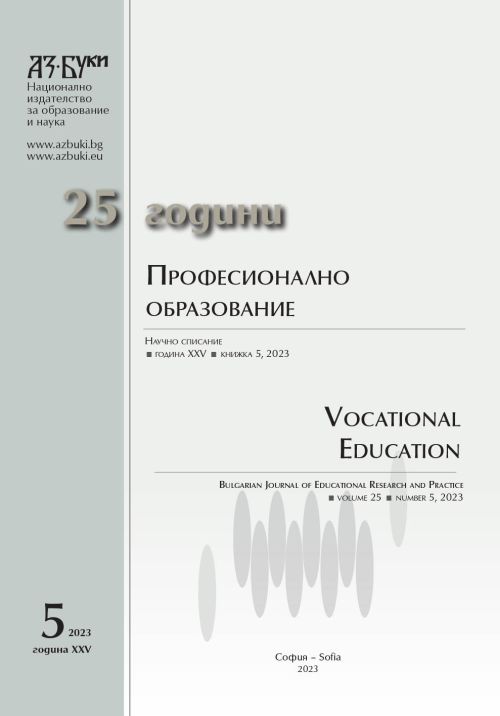Компетентностният подход в класната стая на XXI век – междудисциплинарно учене
The Competency-based Learning Approach in the 21st Century Classroom – Interdisciplinary Learning and Teaching
Author(s): Maria GenovaSubject(s): Social Sciences, Education, School education, Vocational Education, Adult Education, Educational Psychology, State/Government and Education, Inclusive Education / Inclusion, Distance learning / e-learning, Pedagogy
Published by: Национално издателство за образование и наука „Аз-буки“
Keywords: competency-based learning; interdisciplinary learning (Bulgarian Language and Literature; English Language and Literature; Civic Education; uppersecondary education; shared values
Summary/Abstract: The aim of the article is to present one of the best learning and teaching practices for utilising the competency-based learning approach in uppersecondary education through interdisciplinary learning and teaching. Based on the curricula for the 11th grade in academic profiles Bulgarian Language and Literature and English Language and Literature, and the curriculum for general education in Civic Education, as well as on The European Reference Framework for Key Competences for Lifelong Learning and Reference Framework of Competences for Democratic Culture (RFCDC) a series of lessons in the abovementioned subjects is carried out at “Thomas Jefferson” English Language School, Sofia, on the topic of “Shared Values. Human Dignity”. The final lesson is conducted simultaneously in Bulgarian and English by four teachers with four groups of students from different academic profiles integrating new technologies in the learning and teaching process – a shared virtual Google Classroom. The teachers’ goal is to develop students’ civic competencies as well as their cultural awareness and expression competencies based on their acquired multilingual competencies.
Journal: Професионално образование
- Issue Year: 25/2023
- Issue No: 5
- Page Range: 455-467
- Page Count: 13
- Language: Bulgarian
- Content File-PDF

